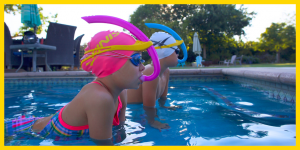Torrey Hart, SwimSwam
October 29, 2019
The NCAA Board of Governors voted unanimously Tuesday to allow student-athletes to profit off of their own name, image, and likenesses in “a manner consistent with the collegiate model,” the organization announced.
The Board is directing each of the NCAA‘s three divisions to “immediately consider updates to relevant bylaws and policies for the 21st century.” The divisions have been asked to create rules that take effect no later than January 2021.
“We must embrace change to provide the best possible experience for college athletes,” Michael Drake, chair of the board and president of The Ohio State University, said. “Additional flexibility in this area can and must continue to support college sports as a part of higher education. This modernization for the future is a natural extension of the numerous steps NCAA members have taken in recent years to improve support for student-athletes, including full cost of attendance and guaranteed scholarships.”
The move comes almost exactly a month after California passed bill SB 206, otherwise known as the “Fair Pay to Play Act,” which was set to grant California-based NCAA athletes the opportunity to profit off their name, image and likeness come 2023. After that bill was passed, other states quickly followed with their own versions, challenging the NCAA‘s long-standing stranglehold on keeping its athletes amateur in the financial sense.
The Pac-12 Conference – the major conference in which Division I teams in California participate – and its schools in the state publicly opposed the bill, voicing concerns regarding recruiting and the support of Olympic and women’s sports.
The board recommended updates to the following guidelines specifically, according to the release:
- Assure student-athletes are treated similarly to non-athlete students unless a compelling reason exists to differentiate.
- Maintain the priorities of education and the collegiate experience to provide opportunities for student-athlete success.
- Ensure rules are transparent, focused and enforceable and facilitate fair and balanced competition.
- Make clear the distinction between collegiate and professional opportunities.
- Make clear that compensation for athletics performance or participation is impermissible.
- Reaffirm that student-athletes are students first and not employees of the university.
- Enhance principles of diversity, inclusion and gender equity.
- Protect the recruiting environment and prohibit inducements to select, remain at, or transfer to a specific institution.
The decision was based on the recommendation of the NCAA Board of Governors Federal and State Legislation Working Group, which includes presidents, commissioners, athletics directors, administrators and student-athletes.
It’s unclear as of now exactly what implementing rules “in a manner consistent with the collegiate model” entails — and the decision will garner some level of skepticism until that potentially massive caveat does come to light. In fact, in a page of FAQs that came along with the announcement, the NCAA maintained that it believes California’s approach is unconstitutional, and “directly contradicts the mission of college sports within higher education,” so don’t expect athletes to be freely signing lucrative endorsement deals just yet.
Read the original article here
Recent Articles
Dylan Carter
Chelsea Hodges
Lorenzo Zazzeri

Introducing the Stability Snorkel Jr
Share on Social Media


